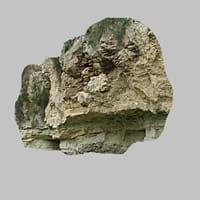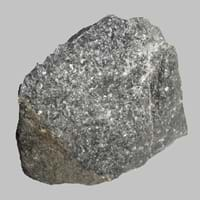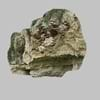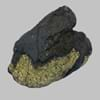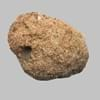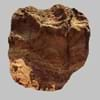Definition
A water-soluble mineral sediment resulting from concentration and crystallization by evaporation from an aqueous solution
Andesite is a dark, fine-grained, brown or greyish intermediate volcanic rock which is a commonly found in lava
Discoverer
Usiglio
Unknown
Etymology
From a sediment left after the evaporation
From Andes mountains, where it is found in abundance
Class
Sedimentary Rocks
Igneous Rocks
Sub-Class
Durable Rock, Soft Rock
Durable Rock, Hard Rock
Group
Not Applicable
Volcanic
Other Categories
Coarse Grained Rock, Fine Grained Rock, Medium Grained Rock, Opaque Rock
Fine Grained Rock, Opaque Rock
Texture
Earthy
Aphanitic to Porphyritic
Color
Green, Grey, Silver, White
Bluish - Grey, Grey, Pink, Yellow
Durability
Durable
Durable
Appearance
Glassy, Vesicular and Foilated
Dull and Soft
Interior Uses
Decorative Aggregates, Entryways, Flooring, Homes, Interior Decoration
Decorative Aggregates, Floor Tiles, Homes, Interior Decoration, Kitchens
Exterior Uses
As Building Stone, As Facing Stone, Garden Decoration, Paving Stone
Office Buildings, Roof Tiles
Other Architectural Uses
Curbing
Curbing
Construction Industry
As a Flux in the Production of Steel and Pig Iron, As a Sintering Agent in Steel Industry to process Iron Ore, As Dimension Stone, Cement Manufacture, for Road Aggregate, Making natural cement, Manufacture of Magnesium and Dolomite Refractories
Cobblestones, Construction Aggregate, for Road Aggregate
Medical Industry
Taken as a Supplement for Calcium or Magnesium
Not Available
Antiquity Uses
Artifacts
Artifacts, Monuments, Sculpture, Small Figurines
Commercial Uses
Used in the manufacture of Ceramic Powder, Used in the preparation of Sulfuric Acid and Silicon Diborite
Commemorative Tablets, Creating Artwork
Types
Not Available
Icelandite
Features
Generally rough to touch, Splintery, Veined
Generally rough to touch, High silica content, Is one of the oldest rock
Archaeological Significance
Monuments
Not Yet Used
Used
Famous Monuments
Not Applicable
Middle of the Earth in Ecuador
Sculpture
Not Yet Used
Used
Famous Sculptures
Not Applicable
Not Available
Pictographs
Used
Not Used
Petroglyphs
Used
Not Used
Figurines
Not Yet Used
Used
Formation
Evaporite is water-soluble mineral sediment which forms from concentration and crystallization by evaporation from an aqueous solution.
Andesite is a fine-grained igneous rock that forms when the magma is erupted onto the surface and is crystallized quickly.
Mineral Content
Calcite, Cancrinite, Gypsum, Kyanite, Magnetite
Amphibole, Apatite, Biotite, Feldspar, Garnet, Hornblade, Ilmenite, Magnetite, Plagioclase, Pyroxene, Zircon
Compound Content
CaMg(CO3)2, CaO, Calcium Sulfate, KCl, MgO, NaCl
Silicon Dioxide
Types of Metamorphism
Burial Metamorphism, Cataclastic Metamorphism, Contact Metamorphism, Impact Metamorphism, Regional Metamorphism
Burial Metamorphism, Cataclastic Metamorphism, Contact Metamorphism, Hydrothermal Metamorphism, Impact Metamorphism, Regional Metamorphism
Types of Weathering
Not Applicable
Biological Weathering, Chemical Weathering, Mechanical Weathering
Types of Erosion
Not Applicable
Chemical Erosion, Coastal Erosion, Glacier Erosion
Grain Size
Medium to Fine Coarse Grained
Very fine-grained
Fracture
Conchoidal
Uneven
Porosity
Less Porous
Less Porous
Luster
Subvitreous to Dull
Vitreous
Cleavage
Perfect
Not Available
Toughness
Not Available
1.1
Specific Gravity
2.86-2.99
2.5-2.8
Transparency
Translucent
Opaque
Density
2.8-2.9 g/cm3
2.11-2.36 g/cm3
Resistance
Heat Resistant, Pressure Resistant
Heat Resistant, Pressure Resistant, Wear Resistant
Deposits in Eastern Continents
Asia
Not Available
India, Indonesia, Japan, Nepal, South Korea
Africa
Not Available
Egypt, Ethiopia, Morocco, Namibia, South Africa, Tanzania
Europe
United Kingdom
Austria, Finland, Germany, Italy, Romania, Turkey, United Kingdom
Others
Not Available
Not Available
Deposits in Western Continents
North America
USA
Mexico, USA
South America
Colombia, Paraguay
Argentina, Bolivia, Chile, Colombia, Ecuador, Peru, Venezuela
Deposits in Oceania Continent
Australia
Central Australia, Western Australia
New South Wales, New Zealand, Western Australia
